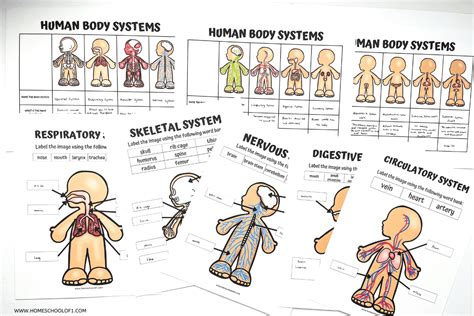Strategic carb timing: optimize energy, avoid fat gain?

In the world of nutrition, few topics generate as much discussion and debate as carbohydrate intake. For years, low-carb diets have been championed for weight loss, while athletes swear by carbs for performance. The truth, however, often lies in nuance, and for many, the key isn’t just how many carbs you eat, but when you eat them.
The Science Behind Carb Timing
Carbohydrates are your body’s primary source of energy. When consumed, they are broken down into glucose, which can be used immediately or stored as glycogen in your muscles and liver. These glycogen stores are critical for fueling high-intensity exercise and maintaining blood sugar levels.
Insulin, a hormone released by the pancreas in response to glucose, plays a pivotal role. It helps transport glucose into cells, but excessive or poorly timed insulin spikes can, in theory, contribute to fat storage. Strategic carb timing aims to harness insulin’s anabolic effects for muscle growth and glycogen replenishment while minimizing its potential to promote fat gain.

Benefits of Strategic Carb Timing
- Optimized Energy for Performance: Ensures your body has readily available fuel for intense workouts, preventing fatigue and improving output.
- Enhanced Recovery: Replenishes muscle glycogen stores quickly after exercise, accelerating muscle repair and reducing soreness.
- Improved Nutrient Partitioning: Directs carbohydrates towards muscle tissue for energy and recovery, rather than primarily into fat stores.
- Better Body Composition: By fueling workouts and aiding recovery, it supports lean muscle mass while potentially mitigating fat accumulation.
When to Eat Your Carbs
The timing of your carbohydrate intake should largely revolve around your activity levels, particularly your workouts.
Pre-Workout Carbs
Consuming carbohydrates before exercise provides your muscles with the immediate energy they need to perform. This is especially crucial for endurance activities and high-intensity strength training.
- Timing: 1-3 hours before your workout.
- Type: Complex carbohydrates (oats, whole-wheat bread, brown rice) for sustained energy, and a smaller amount of simple carbs (fruit) if closer to the workout for quicker absorption.
- Goal: Top off muscle glycogen and provide circulating glucose to prevent fatigue.

Intra-Workout Carbs
For very long or extremely intense training sessions (typically over 60-90 minutes), consuming carbohydrates during your workout can help maintain blood sugar levels, delay fatigue, and spare muscle glycogen.
- Timing: During extended exercise.
- Type: Simple sugars (sports drinks, gels, bananas) that are easily digested and absorbed.
- Goal: Sustain energy, prevent bonking, and maintain performance.
Post-Workout Carbs
This is perhaps the most critical window for carb intake. After exercise, your muscles are highly sensitive to insulin, making them incredibly efficient at absorbing glucose to replenish depleted glycogen stores. This ‘anabolic window’ facilitates recovery and prepares you for your next session.
- Timing: Within 30-60 minutes after your workout.
- Type: A mix of simple and complex carbohydrates is often ideal. Simple carbs kickstart replenishment, while complex carbs provide sustained release.
- Goal: Rapid glycogen re-synthesis, muscle repair, and reduction of muscle protein breakdown.

Non-Training Day Carbs
On days you don’t train, your carbohydrate needs may be lower. Focus on consuming complex, fiber-rich carbohydrates spread throughout the day to maintain energy and support overall health without excess.
- Timing: Spread evenly across meals.
- Type: Predominantly complex carbohydrates from whole foods.
- Goal: Maintain daily energy needs, support metabolic function, and control satiety.
Choosing the Right Carbs
The type of carbohydrate also matters. Generally, focus on whole, unprocessed sources:
- Complex Carbs: Oats, brown rice, quinoa, sweet potatoes, whole-grain breads, vegetables. These provide sustained energy and fiber.
- Simple Carbs: Fruits, honey, sports drinks, white rice (especially post-workout). These are quickly digested and ideal for rapid energy delivery or post-exercise recovery.
Avoid excessive intake of refined sugars and highly processed foods, which can lead to energy crashes and offer little nutritional value, regardless of timing.

Individualization and Practical Tips
Carb timing is not a one-size-fits-all approach. Factors like your individual metabolism, activity level, body composition goals, and genetic predispositions all play a role.
- Listen to Your Body: Pay attention to how different timings and types of carbs affect your energy, mood, and satiety.
- Experiment: Try different approaches and adjust based on your results.
- Consistency: While timing is important, overall daily carbohydrate intake relative to your activity and goals remains paramount.
- Combine with Protein: Pairing carbohydrates with protein, especially post-workout, enhances recovery and muscle repair.

Strategic carb timing can be a powerful tool in your nutritional arsenal, helping you to unlock peak performance, accelerate recovery, and maintain a favorable body composition. By understanding the science and applying these principles, you can optimize your energy levels and potentially avoid unwanted fat gain, turning carbohydrates from a nutritional enigma into a precise advantage.








